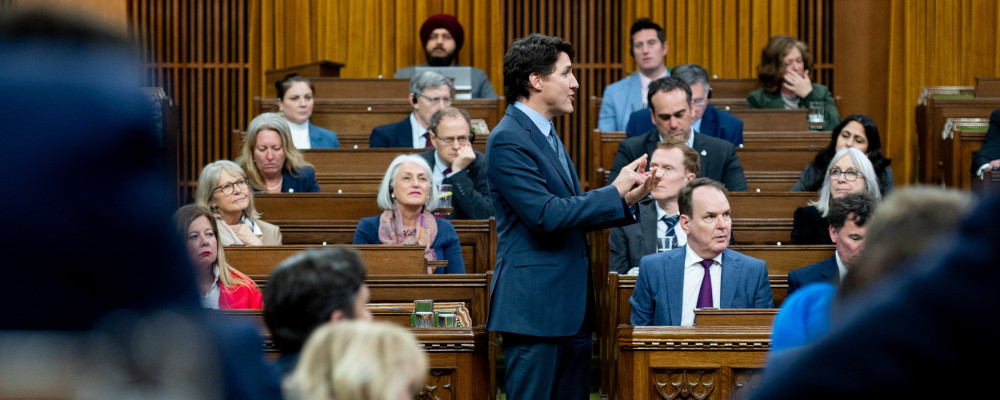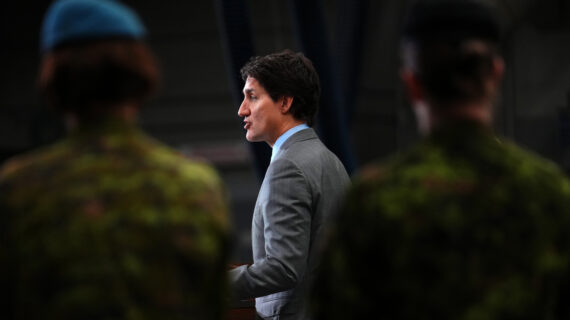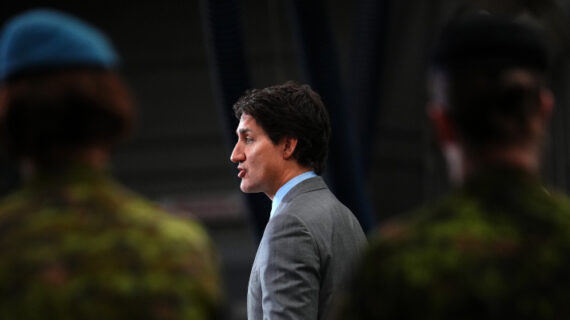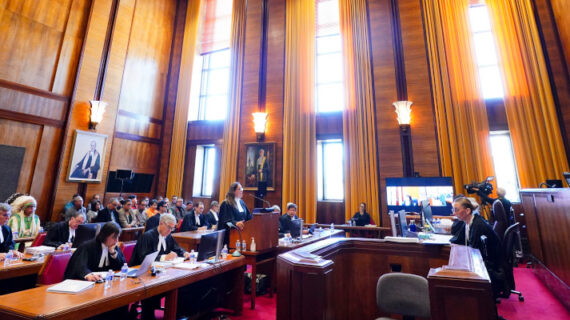In Monday’s lead article on The Hub entitled “How to get better—not bigger—government,“ Sean Speer and Andrew Evans argue that the best way to achieve leaner, more decisive, and more effective government in this country is to make the Canadian government much more like the American one. While there’s much we can learn from our American neighbours, taking major steps to “presidentialize” our Westminster system of government is not one of them.
In other forums (most recently Policy Brief), we have argued that there is an urgent need to overhaul the functioning not only of the government as a whole but of how the prime minister and his staff relate to cabinet ministers and to the public servants who are supposed to implement their agenda. An overhaul is needed for reasons manifold and obvious to most Canadians—policy failures in everything from fiscal policy to immigration, management failures ranging from the ArriveCan app to passports to procurement generally, and the list goes on and on.
In our view, the issue is not whether the government of Canada needs to do things differently—we are on the same wavelength with Speer and Evans on that point—but how to structure the change. They argue for an even larger and more powerful Prime Minister’s Office, armed with new mechanisms for the exercise of central control over the workings of government. Their proposed model is copied from the American presidential system: a powerful CEO surrounded by a large cadre of political staff who are organized around a new set of executive bodies such as a National Economic Council, a Domestic Policy Council, and the like. In their world, “policy development itself [is] more of a shared enterprise between PMO and government departments.”

The authors’ description of what they envisage shows not just a desire for change but rather for a wholesale revision of our Westminster system of cabinet government:
These policy councils would not only consist of PMO/PCO staff, but they could also include non-government experts and representatives from relevant departments, agencies, and ministers’ offices, including relevant ministers themselves. They would also have their own policy analysis and research capacity, unlike current cabinet committees. This would provide an alternative capacity for policy ideation and oversight that would break the monopoly of government departments while at the same time not sidelining their advice altogether.
Strikingly absent from their desired model is almost any reference to ministers or the public service. Indeed, the authors make almost no mention of ministers, their legal responsibilities and their accountability to Parliament, nor do they mention cabinet as the central forum for government decision-making.
Is this the right direction for governance in Canada? Clearly, it is not.
First, it misses the point that the American system and our Westminster system are fundamentally different. Our system is based on the supremacy of Parliament. Under our Constitution, the authority of the state is vested by Parliament in ministers who collectively form the government of the day under the leadership of the PM. In turn, ministers are individually and collectively responsible to Parliament for what is done in and by the government.
Deputy ministers and officials in central agencies (as well as experts in other departments) serve not just their minister but the government as a whole. Creating a large, central source of expert advice to the PM in the PMO would only create conflict and confusion inside the government and sideline ministers and their departments. That’s not a recipe for efficiency or effectiveness.
The individual and collective responsibility of ministers to Parliament is the core of our system—it’s what makes us a Westminster democracy. It has no counterpart in the American Constitution, where democratic legitimacy is sustained by the president’s accountability not to Congress but rather directly to the American people. The strength of ours is that the political executive, which is drawn from the legislature, is directly accountable to it on a daily basis.
Second, under the model proposed by Speer and Evans, ministers would be sidelined, while the PM’s political staff would be enormously empowered and yet entirely unaccountable, save informally to the PM. The only person who could be held to account by Parliament with respect to them would be the PM. This would almost completely undermine cabinet government. It would prevent MPs from being able to question ministers on what they had done or not done because the people making the decisions would be the PM’s unelected and unaccountable political staff. It is not clear how radically reducing accountability in this manner would improve either the efficiency of government or its democratic legitimacy, with so much authority exercised principally by political staffers without a constitutional role or legitimacy.

Third, extreme centralization does not pass any Management 101 course. The public sector and the private sector differ in important respects, but there is much the public sector can learn from modern private sector management practices. In large private sector organisations like RBC or Shopify or Amazon or Microsoft, the trend is very much away from tightly centralised decision-making in the CEO’s office towards devolved decision-making and clear accountability for results. In our Westminster system, likewise, the fact that ministers are individually and collectively accountable to Parliament is what imposes discipline on decision-making and is what enables the PM to hold the members of his cabinet accountable. Question period may some days look like a circus, but it is actually a crucial mechanism for the exercise of democratic accountability of ministers and the government to Parliament and the people.
Over the past 25 years, various commentators, including Jeffrey Simpson in his valuable book The Friendly Dictatorship, have argued that our system of parliamentary and cabinet government has become excessively centralized, with too many decisions made by staff and officials accountable only to the PM. To some extent, this may seem a consequence of the digital age, an extreme focus on issues and messaging, and the public’s demand for instant reactions to issues. But this tendency toward the piling up of power at the centre is neither inevitable nor healthy.
Another approach, which we advocate, is going back to Westminster basics and having a cabinet of strong and empowered ministers, giving them the authority required to fulfil their responsibilities, and then equipping Parliament with the resources and authority to hold ministers properly to account. From C. D. Howe to Joe Clark to Don Mazankowski to Paul Martin, strong and capable ministers have been a hallmark of periods of active and competent Canadian policymaking. Those strong ministers have in turn reflected well on the PMs they served. The rising trend towards presidentialism of recent years has a less glorious track record.
Let us be clear: the way the federal government operates needs fixing. But, many of its difficulties, especially the obsession with messaging and the micro-management of complex problems by the centre, are due to excessive centralization of power, and certainly will not be solved by placing even more power in the hands of unelected officials in the PMO. To restore public faith in government, we must trust and empower ministers again, and through them, Parliament.




